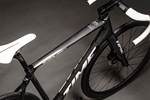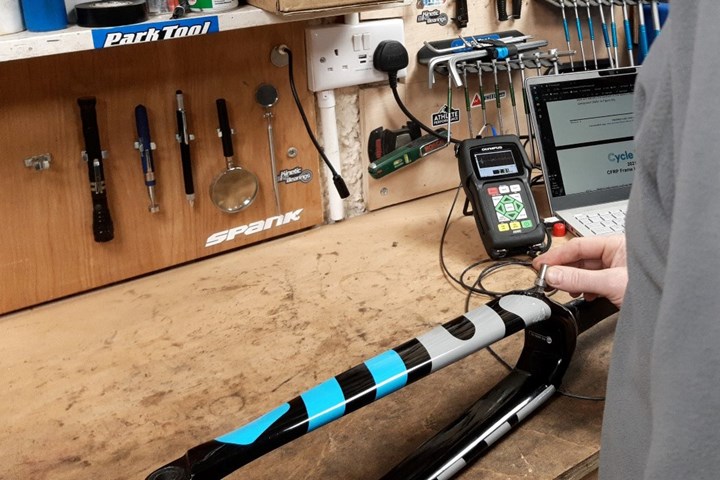Cycle Inspect, UNSW investigate carbon fiber bicycle damage
The collaborative research initiative will explore the prevalence and impact of structural damage in carbon fiber bicycles currently in use by the general public, assessing the magnitude of the issue and raising awareness.
Cycle Inspect (Sydney, Australia), a provider of cutting-edge training and technology solutions in nondestructive testing (NDT) for the bicycle industry, announces a collaborative research initiative with associate professor Soufiane Boufous and associate professor Julie Hatfield of the University of New South Wales’ (UNSW, Australia) Transport and Road Safety (TARS) Research Centre. This partnership will begin to explore the prevalence and impact of structural damage in carbon fiber bicycles currently in use by the general public.
Carbon fiber bicycles have gained immense popularity among cycling enthusiasts and professional athletes due to their lightweight, durable and high-performance nature. Ensuring their safety and reliability is of utmost importance; however, the prevalence and impacts of structural issues is not known. This joint research project, commencing in June 2023, aims to assess the magnitude of the issue and examine experiences of those impacted by some form of structural equipment failure. This initial phase will provide crucial insights that will underpin subsequent rounds of research by Cycle Inspect that will explore the condition of carbon fiber bicycles in “real-world” scenarios.
Dr. Boufous and Dr. Hatfield bring extensive expertise in areas such as injury epidemiology, injury prevention and psychology in the context of cycling and road safety to this research collaboration. Their previous work has included developing innovative methods of assessing the burden and risk factors of trauma, investigating psychological contributors to risky behavior and they have extensive experience in injury surveillance and record linkage of injury data.
“By combining our expertise as the industry’s first data-driven training and technology solution for bicycle industry professionals in the area of NDT with UNSW’s in-depth knowledge of injury epidemiology, we hope to raise awareness of the extent of the issue,” Dr. Andrew Novak, data and research lead at Cycle Inspect, says. “Ultimately, this research will benefit cyclists around the world, empowering them to make responsible decisions that ensure equipment longevity.”
The findings of this collaborative research project will be published via Cycle Inspect’s website and offered to cycling publications (consumer and trade) in conjunction with leading academic journals. The insights gained from the research will also inform additional phases of Cycle Inspect’s research, specifically the evaluation of carbon fiber bicycles currently in use by the general public; the analysis of the broader health and financial impacts and risks related to structural failures of carbon fiber bicycle frames and components; and the correlation between various forms of visible and underlying damage (sustained via impact, manufacturing processes) and failure risk.
Cycle Inspect seeks to raise awareness of the risks associated to buying, selling, and using damaged or defective equipment; whilst providing bicycle industry professionals (mechanics, repairers, painters, builders and more) and aligned industries (such as specialty bicycle insurers) with the skills, knowledge and technology to make informed decisions regarding the safety of their customers.
Related Content
-
Infinite Composites: Type V tanks for space, hydrogen, automotive and more
After a decade of proving its linerless, weight-saving composite tanks with NASA and more than 30 aerospace companies, this CryoSphere pioneer is scaling for growth in commercial space and sustainable transportation on Earth.
-
Composites manufacturing for general aviation aircraft
General aviation, certified and experimental, has increasingly embraced composites over the decades, a path further driven by leveraged innovation in materials and processes and the evolving AAM market.
-
The lessons behind OceanGate
Carbon fiber composites faced much criticism in the wake of the OceanGate submersible accident. CW’s publisher Jeff Sloan explains that it’s not that simple.

















